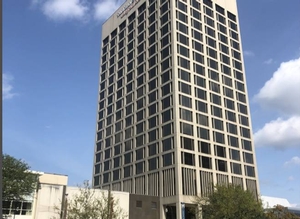Articles
Immigration Alert: Restrictive New H-1B Regulations
on October 7, 2020October 7, 2020
Advance drafts of two new federal regulations have been introduced, which will have a significant impact on the H-1B nonimmigrant category and other employment-based immigration benefits. Specifically, pre-published sets of the following regulations have been released:
1. Strengthening Wage Protections for the Temporary and Permanent Employment of Certain Aliens in the United States: This is a set of new rules, proposed by the U.S. Department of Labor, with the stated purpose of redesigning the Prevailing Wage Determination process for employers’ sponsorship of foreign workers in the H-1B, E-3, H-1B1 and PERM categories.
- Executive Summary: Required minimum wages to be paid to foreign workers in the U.S. will soon significantly increase. Impacted immigration categories include H-1B, E-3, H-1B1, and PERM.
- Effective Date: Tomorrow, October 8, 2020, upon publication. Labor Condition Applications filed on or after this date will be subject to the wage increases. PERM Prevailing Wage Determinations, issued after this date by the DOL, will also be subject to the wage increases.
- Background: The U.S. Department of Labor (DOL) uses wage data from the Federal Bureau of Labor Statistics to calculate fair-market Prevailing Wages, across all occupations. Prevailing Wages are based on actual compensation rates by U.S. employers, across geographies and job categories. Prevailing Wages are organized into four Wage Levels: Level I (entry), Level II (qualified), Level III (experienced) and Level IV (fully competent). A full summary of the DOL analysis used to determine Prevailing Wage is available online.
- New Rule: DOL Prevailing Wage minimums will increase significantly, across occupations and Wage Levels. In calculating the four Wage Levels for a given occupation, the DOL gathers data regarding the average wages paid to U.S. workers, and then distributes these according to a percentile system, lowest to highest. DOL now proposes to increase the percentiles used as a basis for Wage Level calculations, resulting in increased mandatory minimum wages, tens of thousands of dollars higher than previous minimums. Specific dollar increases, per occupation and location, will be made publicly available as the regulations go into effect. However, the newly-assigned percentiles are illustrative as to the coming increases: Level I (from 17th to 45th average wage percentile), Level II (from 34th to 62nd average wage percentile), Level III (from 50th to 78th average wage percentile), and Level IV (from 67th to 95th average wage percentile).
- Suspension of these rules due to litigation is likely: The new Prevailing Wage regulations are being put into immediate effect by the DOL, without the usual notice and comment period, required by the Administrative Procedures Act. Having foregone this required step in the federal rulemaking process, the DOL has left matters ripe for a challenge in Federal District Court, which would very likely result in a preliminary injunction. If this happens, the new Prevailing Wage regulations will be suspended, indefinitely, until the court determines the legality of the DOL’s approach.
- Executive Summary: Criteria for H-1B sponsorship will become much more restrictive, especially for scenarios where an H-1B worker will be placed on the premises of a third-party.
- Effective Date: December 7, 2020. The proposed regulations will be published on the Federal Register tomorrow, October 8, 2020. Unlike the proposed DOL regulations, summarized above, the new DHS rules will be open to public notice and comment, for a 60-day period. After this period, on December 7th, the regulations will go into effect.
- Background: The H-1B nonimmigrant category allows U.S. workers to temporarily employ foreign workers in professional, or “specialty occupation” roles requiring a minimum of a bachelor’s degree. The Trump Administration has made H-1B reform a major objective over the past several years, having already made certain H-1B adjudications standards much more rigorous. Some of these changes, implemented by DHS since President Trump took office, have been successfully challenged in court. The newly-introduced regulations will reinstate previously rescinded H-1B standards, and also introduce new obstacles to sponsorship.
- New Rule: Generally, the new H-1B regulations proposed by DHS will have the following effects:
a. New Definition of “Specialty Occupation”: For H-1B purposes, the term “specialty occupation” will be limited to occupations requiring a bachelor’s degree in a specific, directly-related field. Candidates with academic credentials deemed peripherally-related, or too general, will no longer be eligible for sponsorship.
b. Shortened Approval Validity for Out-Placed Workers: H-1B sponsorship for a candidate who will be placed at a third-party location will limited to validity in one-year increments, instead of the customary three-years.
c. New Documentary Requirements for Out-Placed Workers: H-1B sponsorship for a candidate who will be placed at a third-party location will require that the employer produce copies of contracts with the third-party (client), and a detailed itinerary of employment, to illustrate that the sponsoring H-1B employer will maintain proper control and oversight of the foreign worker.
d. FDNS Site Visits Codified: The regulations formally authorize the preexisting H-1B site visit program, under the ‘Fraud Detection and National Security’ directorate, which was first implemented by DHS in 2009.
b. Shortened Approval Validity for Out-Placed Workers: H-1B sponsorship for a candidate who will be placed at a third-party location will limited to validity in one-year increments, instead of the customary three-years.
c. New Documentary Requirements for Out-Placed Workers: H-1B sponsorship for a candidate who will be placed at a third-party location will require that the employer produce copies of contracts with the third-party (client), and a detailed itinerary of employment, to illustrate that the sponsoring H-1B employer will maintain proper control and oversight of the foreign worker.
d. FDNS Site Visits Codified: The regulations formally authorize the preexisting H-1B site visit program, under the ‘Fraud Detection and National Security’ directorate, which was first implemented by DHS in 2009.
- Litigation is likely: Unlike the new DOL Prevailing Wage regulations, the new H-1B rules proposed by DHS will be put through the required notice and comment period. Given the sweeping nature of the proposed changes, however, it is highly likely that the H-1B rules will be subject to a challenge in Federal District Court, by U.S. employers whose businesses and operations will be severely impacted by the changes.
While these two sets of proposed regulations have been promulgated by separate administrative agencies, it is obvious by the subject matter of rules, and timing of their release, that they are the result of a coordinated and carefully planned effort by the Trump administration to disrupt U.S. employers’ use of the H-1B category, and other employment-based immigration categories. And, while litigation may result in a delay in the implementation of these rules, it is also quite likely that some version will be enacted. U.S. employers are therefore advised to review their ongoing employee sponsorship needs, in light of the proposed changes.
We will continue to monitor this situation closely, and provide updates as they become available. Please contact me or another member of our Immigration Practice Team if you have any questions, or would otherwise like to discuss.

















